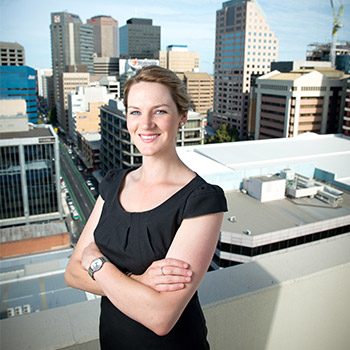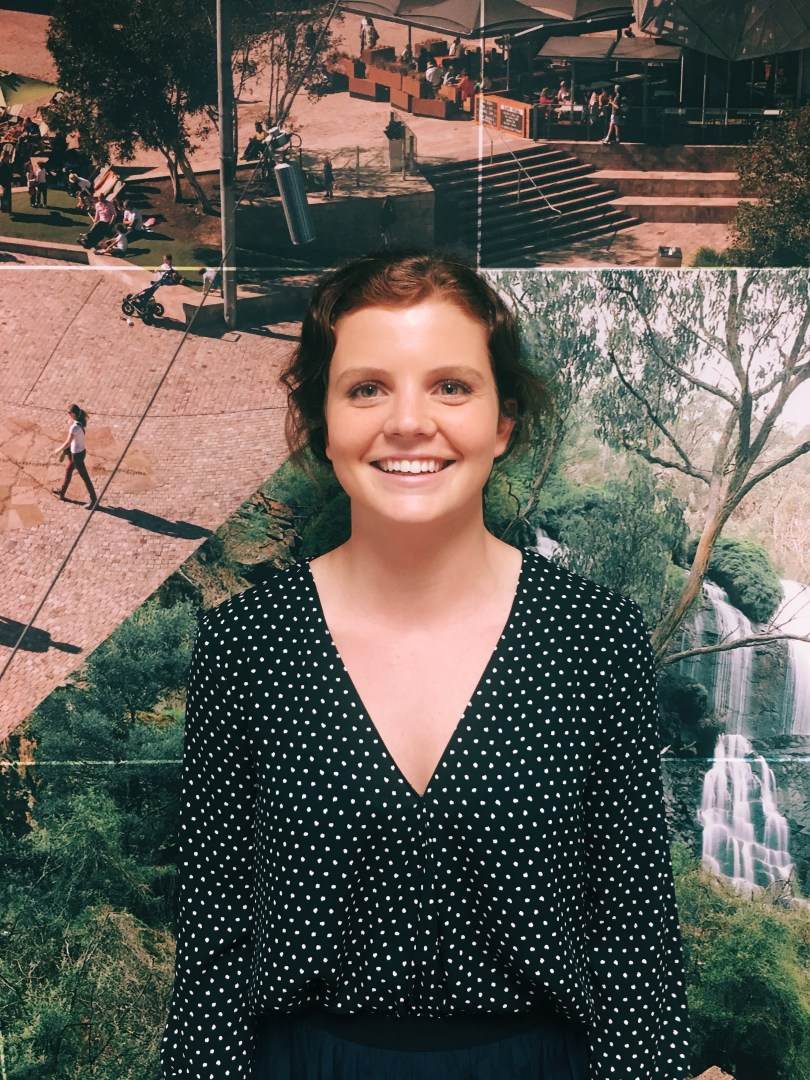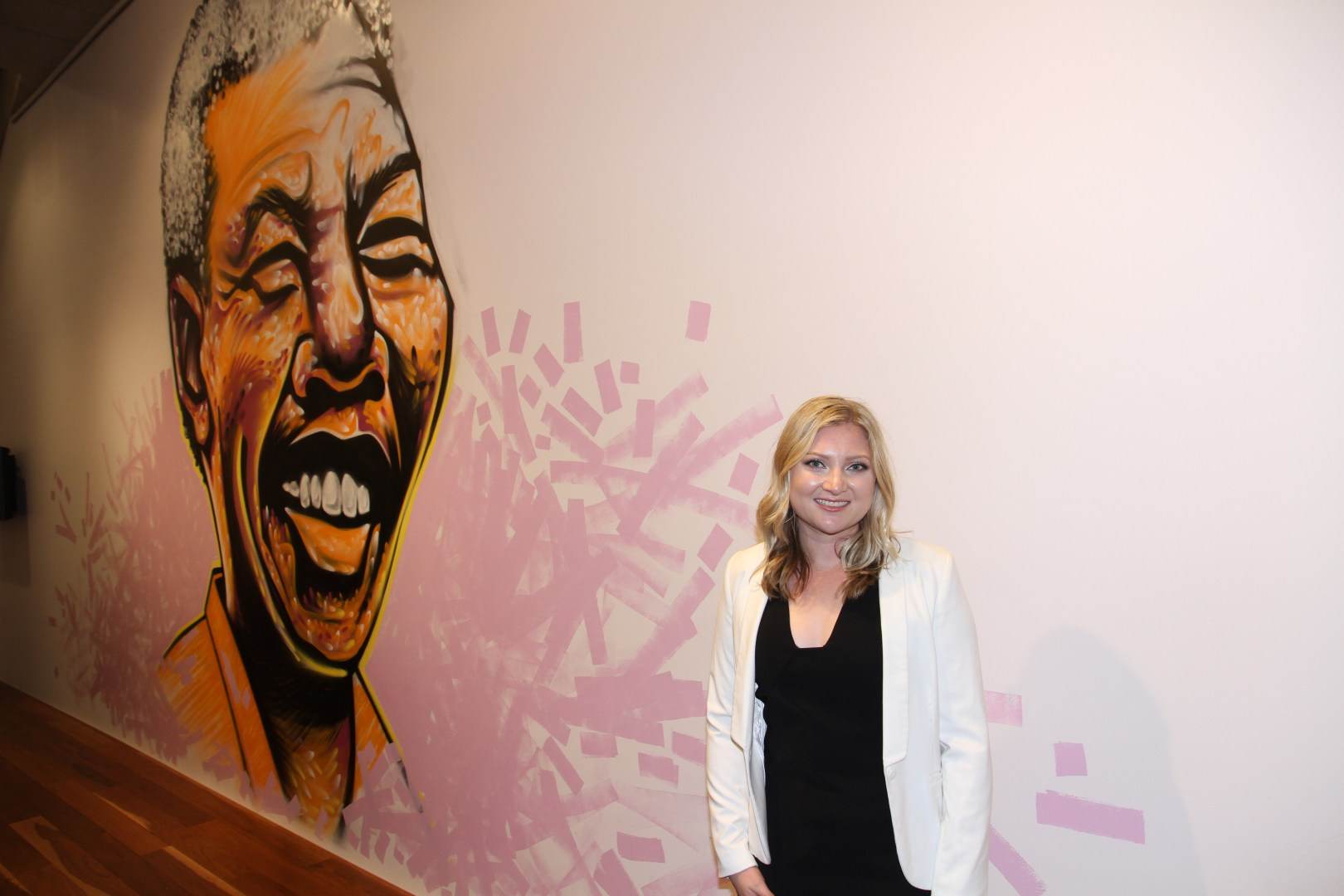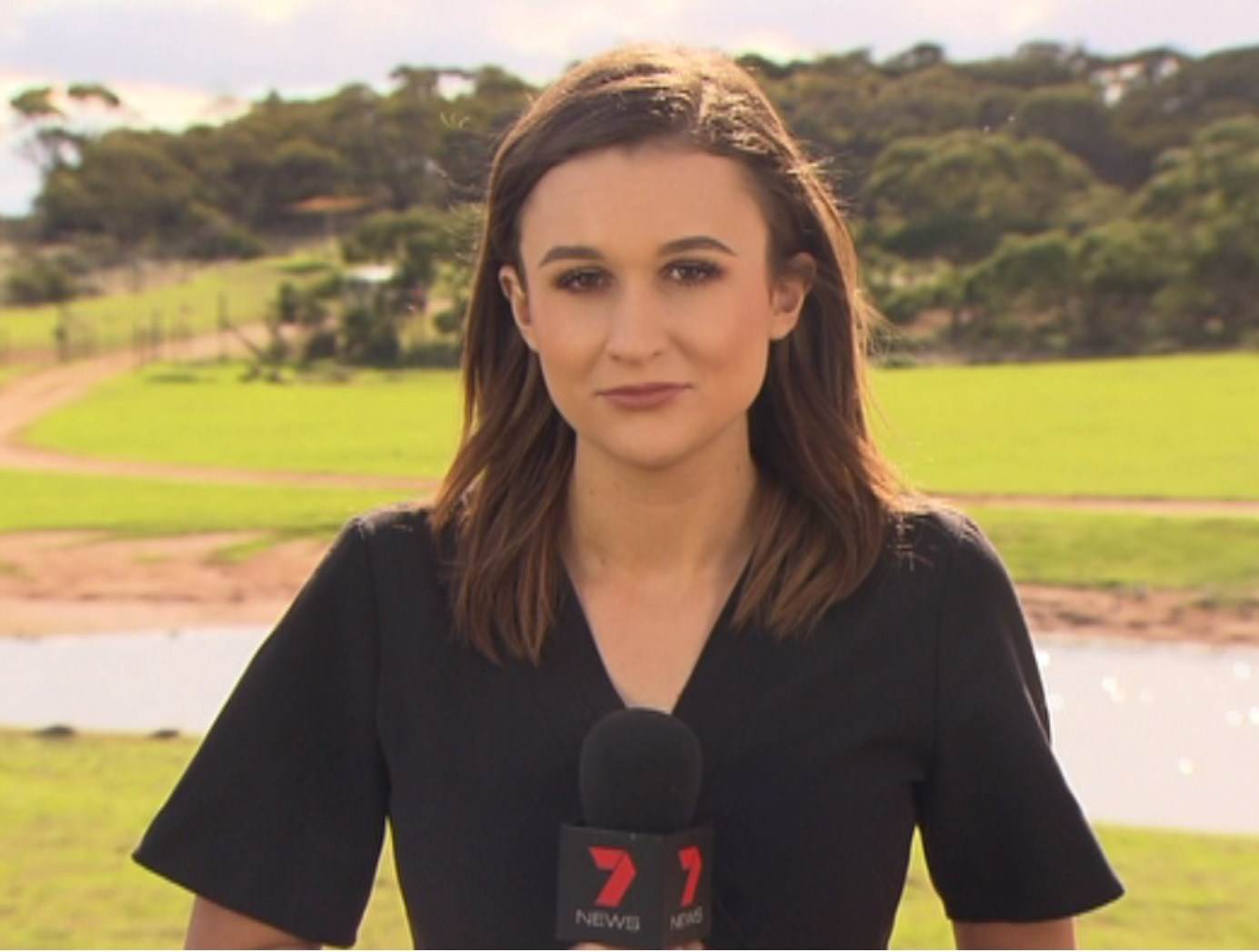You're viewing degree information for International students
You're considered an International student if you are:
- NOT an Australian or New Zealand citizen
- NOT an Australian Permanent Resident (including Humanitarian Visa holders)
Discipline info for International students
Interested in Journalism and Professional Writing?
A journalism and professional writing qualification from UniSA will prepare you for a career as a journalist and writer in mainstream, community and niche media and communication fields. It also opens doors to a wide variety of allied professions such as technical writing, editing, scriptwriting, and marketing and communication.
Our industry-standard on-campus facilities, which include a TV and radio studio, will ensure you graduate career-ready. They offer you the opportunity to practice recording news broadcasts, producing and filming.
You will also get the chance to practise these skills in a real-world environment when you complete an industry internship or project. This is a great opportunity for you to develop your skills, and build important industry experience.
Key features
- Learn in our industry-standard television and radio studios, located on-campus.
- Study a curriculum informed by world-class research in Creative Arts and Writing, Language, Communication and Culture1.
- Gain real-world experience when you complete an industry internship or project.
- Become a published writer with student publications Verse and On the Record, and online radio station UniCast.
1 2018 Excellence in Research for Australia (ERA)
We’ve invested millions of dollars in new buildings and facilities, so you will have access to the latest technologies and will learn in ultra-modern teaching spaces.
We’ve had 100% of our research rated at or above world-class1, and this excellence shines through our teaching. Our people are inspired by challenges and opportunities. We partner with local journalists and media identities and international industry professionals to focus on real-world projects.
12018 Excellence in Research for Australia (ERA)
Our journalism and professional writing qualifications prepare you for a career as a journalist and writer working in text, broadcast, other audio and video, online or for multimedia organisations. You may also set up as an entrepreneurial journalist, charting your own international career. Journalism and journalism-related careers to consider:
- journalist: research, write, edit, proofread and file news stories for use on television, radio or for publication in newspapers, magazines or journals, either in a media organisation or as a freelance or entrepreneurial journalist
- reporter: deliver updates on news stories; reporters often cover breaking stories to quickly inform the public
- TV/radio presenter and/or interviewer: the public face or voice of programs broadcast on television, radio and online
- researcher/producer: for broadcast, podcast or vodcast; journalists research stories, find people to interview and put rich and informative audio or video stories together
- scriptwriter: create characters and storylines for movie or television scripts
- communication specialist: create and deliver internal and external communications
- copywriter: develop advertising concepts; often work alongside an art director
- editor: prepare, write and edit copy; editors also plan and coordinate the selection of material for publication, and may be required to supervise other staff

Global networks
We are a globally connected university, and our staff and students come from more than 90 countries. We have more than 2,500 industry and professional relationships that support student internships, research and community engagement. Our students have had placements and internships with organisations like:
- all major TV networks (ABC, NITV/SBS, 7, 9, 10)
- The Messenger
- The Australian
- The Bunyip
- Newstyle Media
- Department of the Premier and Cabinet
- Cancer Council
- Resthaven
- Uniting Communities
- InDaily/Solstice Media
Industry facts
Study at the new Adelaide University in 2026
The University of Adelaide and the University of South Australia are combining their strengths to create a new university for the future, Adelaide University, opening in January 2026.
From 4 August 2025, the University of Adelaide and University of South Australia will no longer be accepting applications for new students.
UniSA's leading art museums and galleries
Ask UniSA
-
How do I apply?
There are a number of ways to apply to study UniSA's undergraduate and postgraduate coursework degrees.
You can access our online International Application System through our How to Apply page. The International Application System is an easy and secure online application and acceptance process. You will have visibility of your application through the secure online portal with the ability to download offer documents, submit your acceptance and make a payment.
Alternatively you can submit an application through one of the University's registered Education Agents.
If you are completing an Australian year 12 qualification in Australia or overseas, or the International Baccalaureate (IB) Diploma Programme in Australia, you must apply through SATAC http://www.satac.edu.au/.
If you are applying for the UniSA Study Abroad or Study Abroad Plus program, you can submit your application online here.
Postgraduate study by research
For information on applying to do postgraduate study by research, including Masters by Research, PhDs or Doctorates, please visit http://unisa.edu.au/resdegrees. -
Is there a closing date for applications?
There is no closing date for submitting your application however the admissions process takes between one and three weeks from the date that we receive your application and all required supporting documentation.
If you are completing an Australian year 12 qualification in Australia or overseas, or the International Baccalaureate (IB) Diploma Programme in Australia, you must apply through SATAC. Key dates for applications can be found here.
-
What credit can I receive for previous studies?
You may be eligible to receive credit or advanced standing for your chosen UniSA degree based on your previous studies, if they are in a related area at an equivalent or higher level. Receiving credit will reduce the number of courses you undertake within the degree, and may also reduce the overall duration of your degree.
The amount of credit you may be eligible to receive is assessed on a case-by-case basis by the Admissions team.
The best way to determine your eligibility to receive credit or advanced standing is to apply using our International Application System which can be found on our How to Apply page. You will need to supply detailed syllabus documents with your application.
-
Can I speak to someone regarding my study options?
UniSA welcomes the opportunity to speak with you regarding your study options. Our staff are able to talk to you about degree information, career outcomes and pathways, entry requirements, applications, and student life, so that you are able to make the best study decision for your future.
Click here to book a 1:1 appointment with one of our enquiries team.
We also have many events throughout the year in Australia and overseas where you can speak with UniSA representatives about your area of interest. View our calendar of events in your home country by selecting the 'International' filter.
What others are saying
Why study at UniSA?
As one of the most innovative universities in Australia and Asia, there are many reasons to study with us. Here are just three:
Accessible, helpful and flexible
We have six campuses, a 24/7 online learning environment, and we offer flexible study options like online and evening courses.
Graduate success
UniSA is South Australia's number one university for graduate careers.*
*ComparED (QILT) Graduate Outcomes Survey 2019-21 – Full-time Employment Indicator (Undergraduate). SA public universities.
A five star university
Five stars for research, employability, teaching, facilities, internationalisation, inclusiveness and innovation*
*2023 QS Stars Ratings








